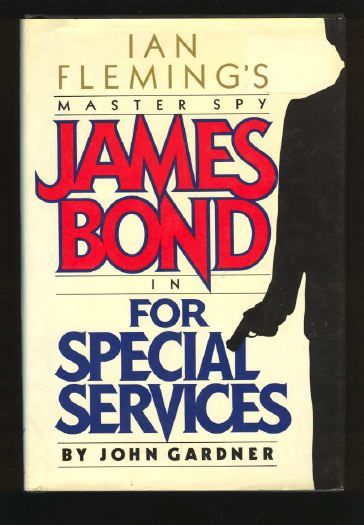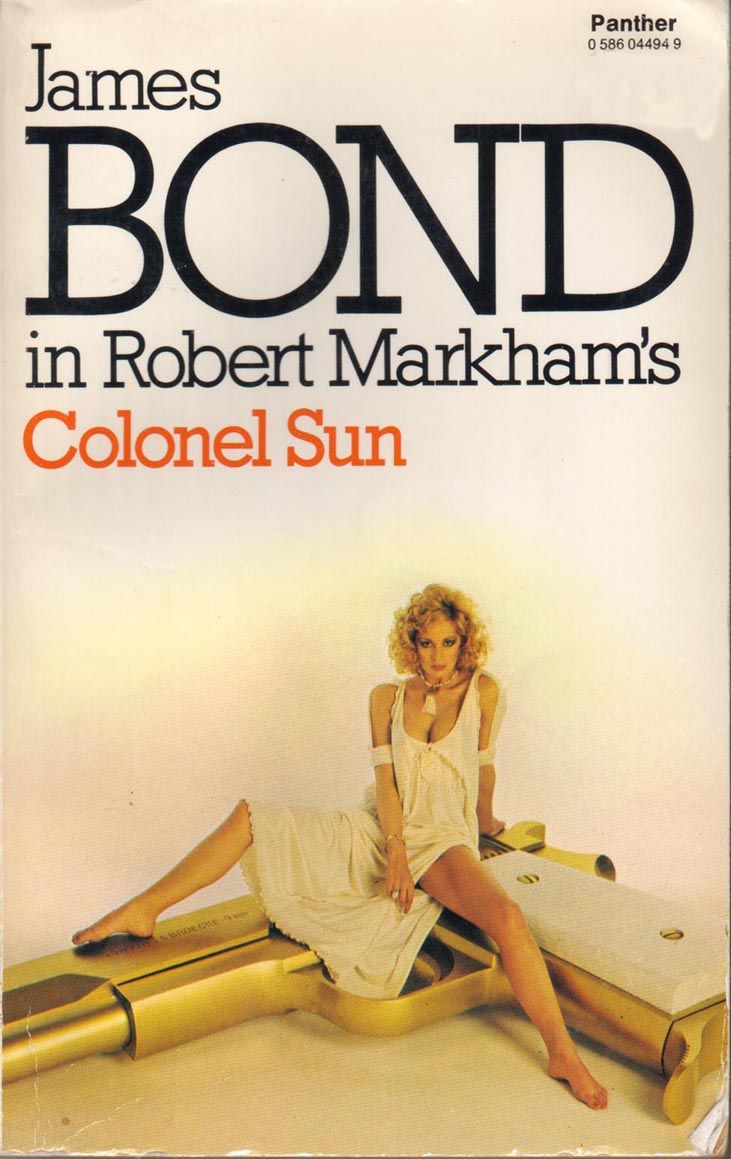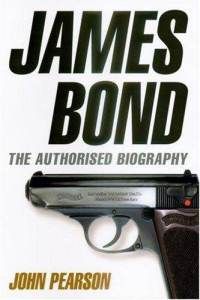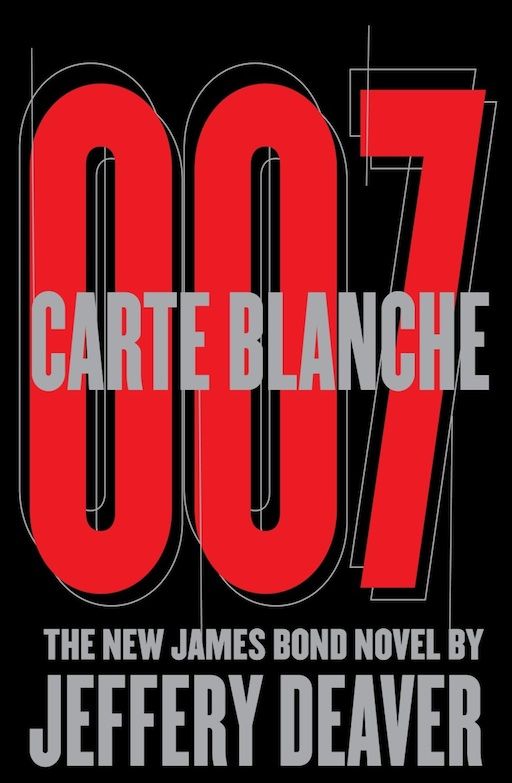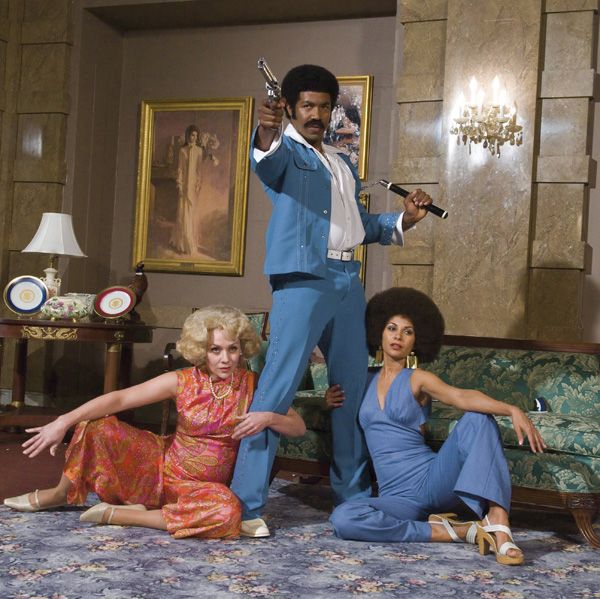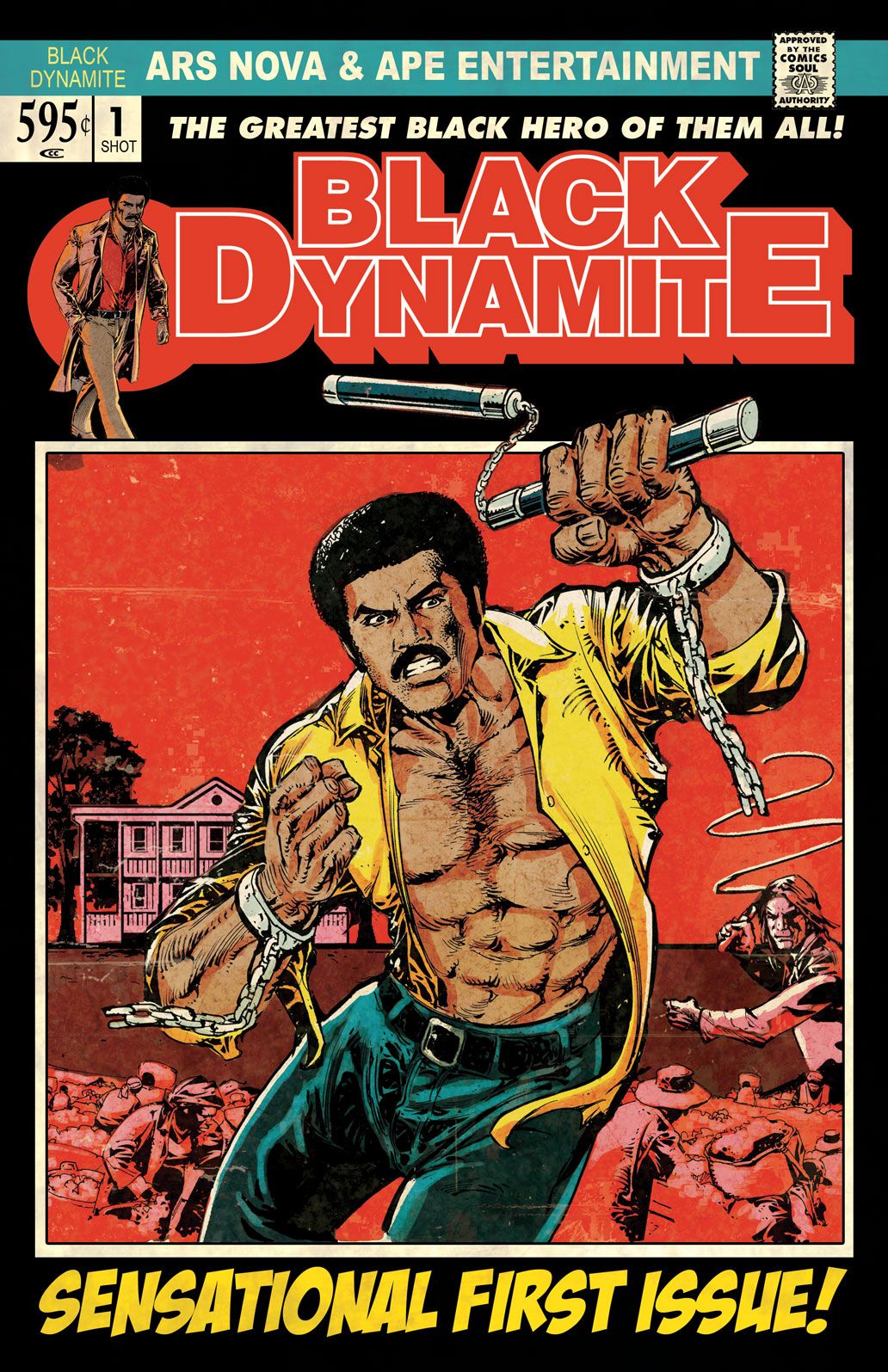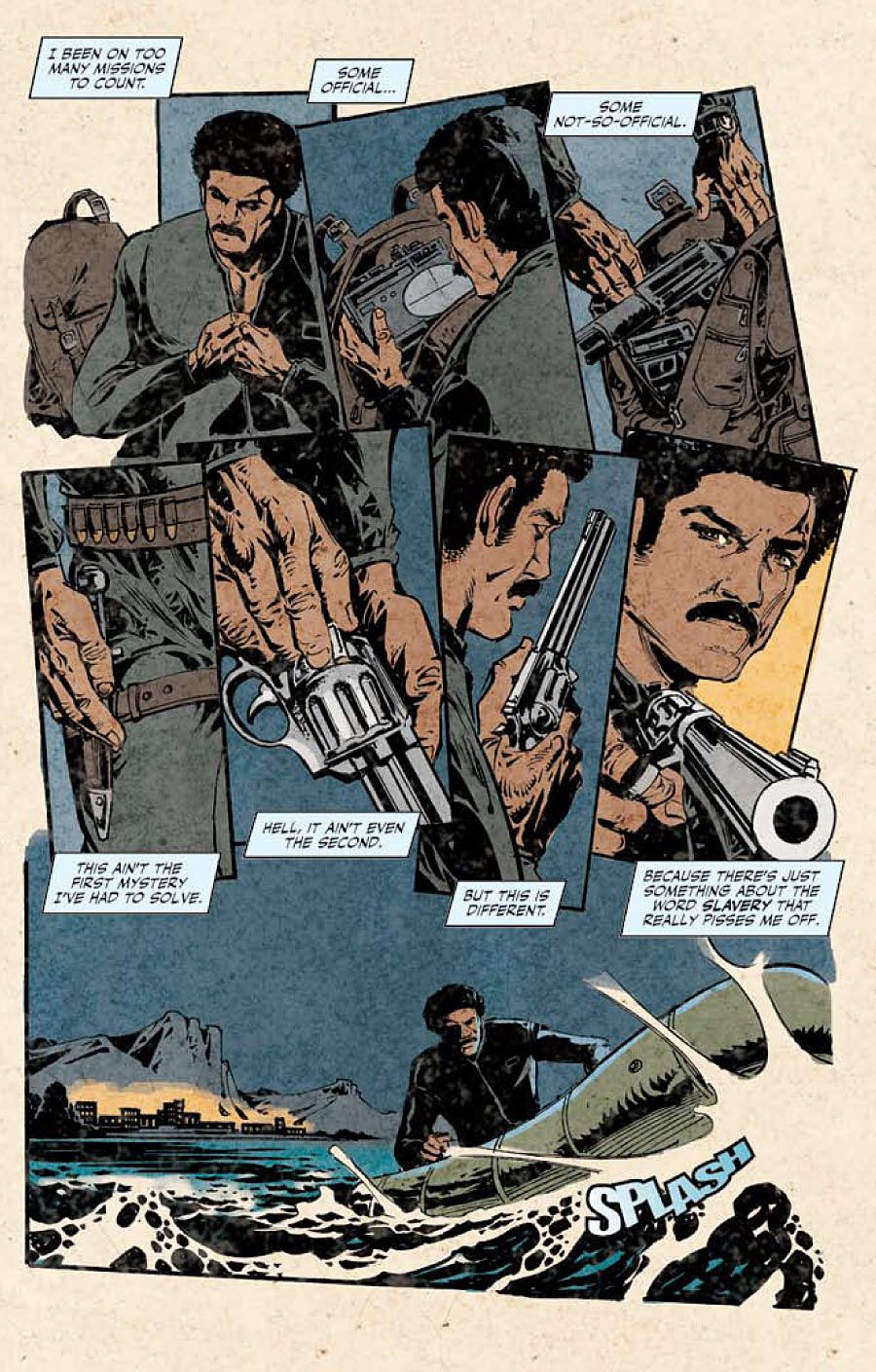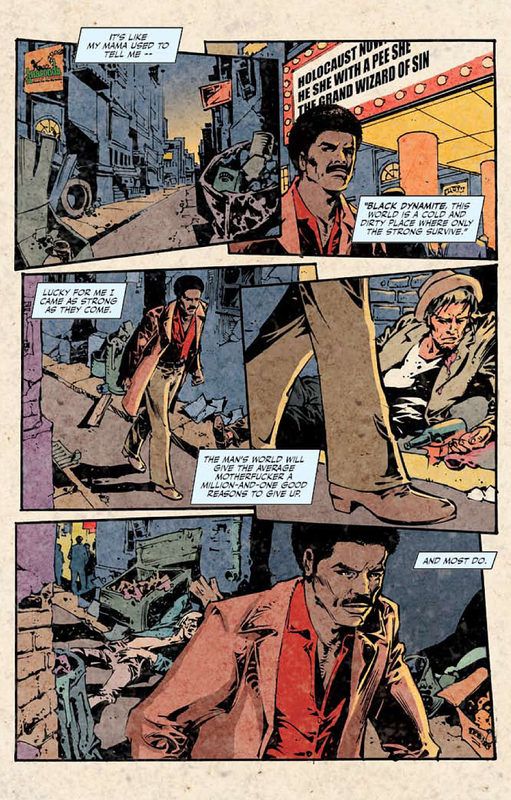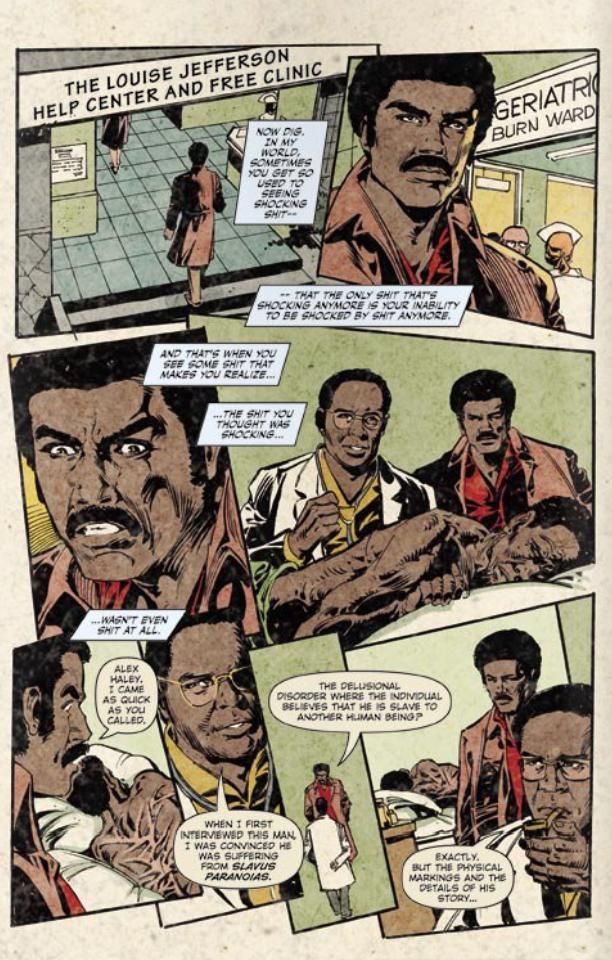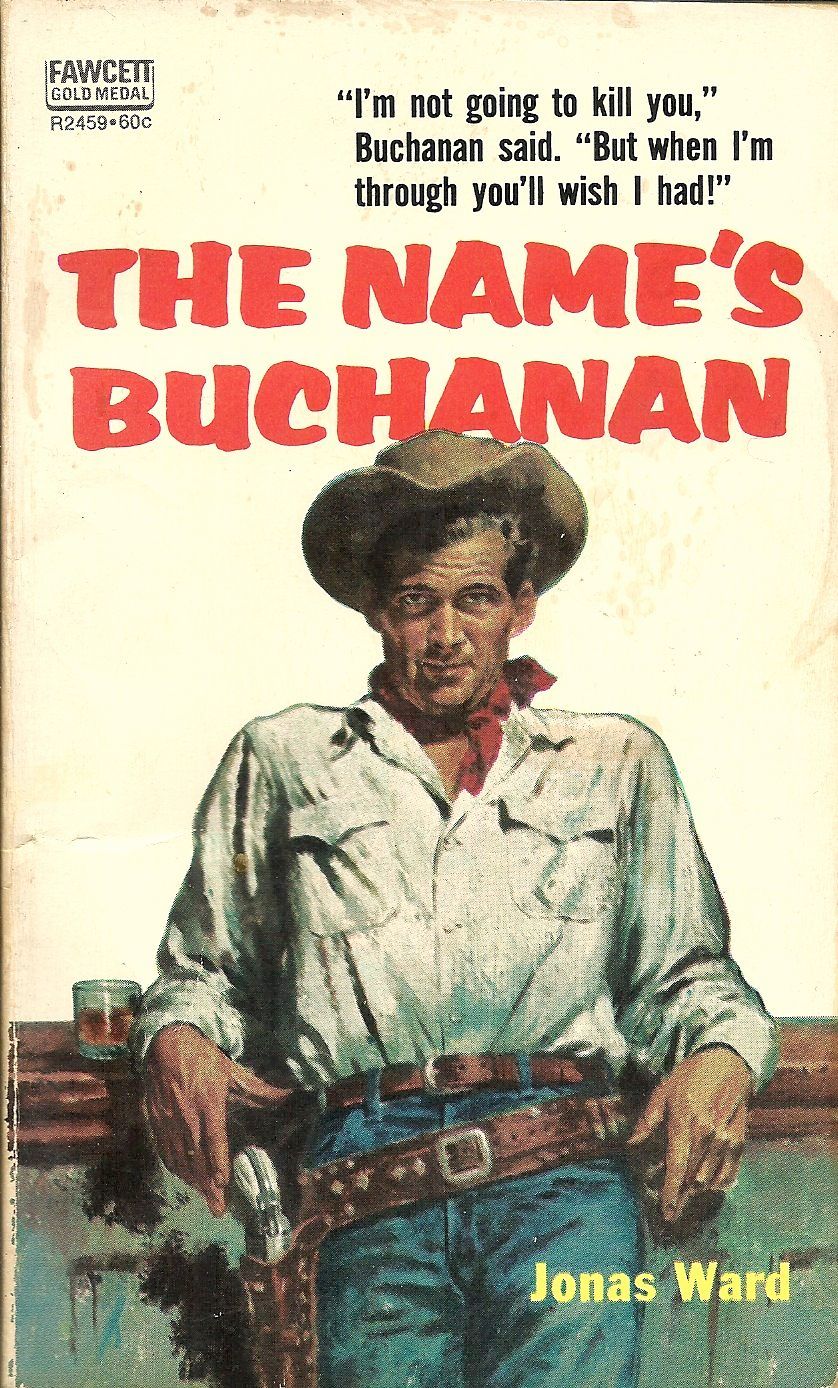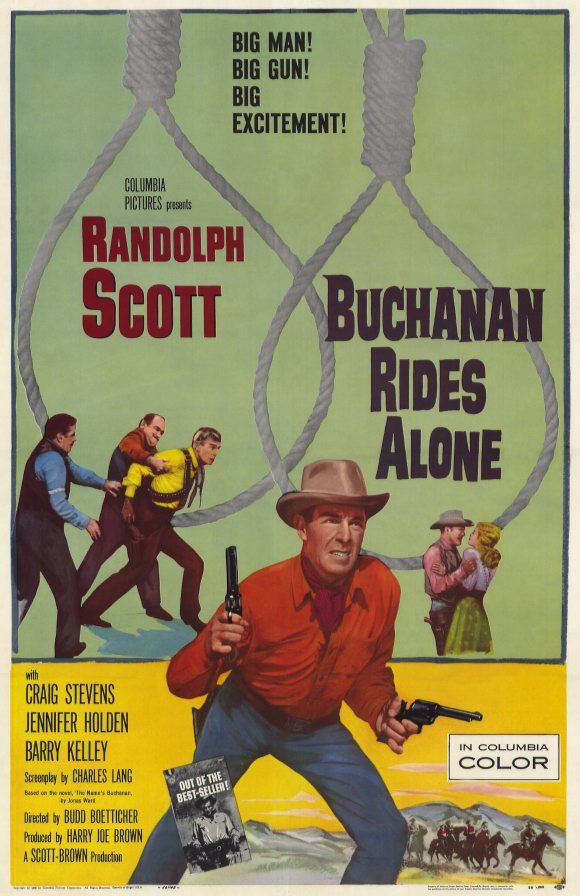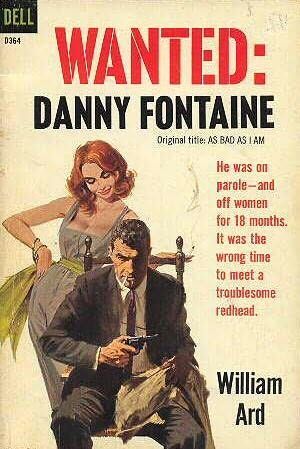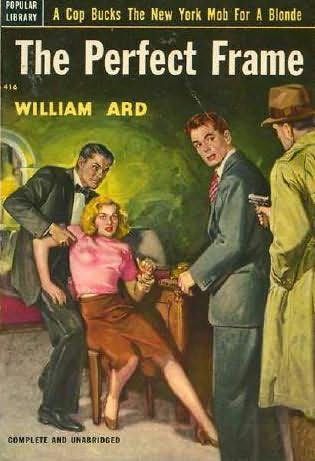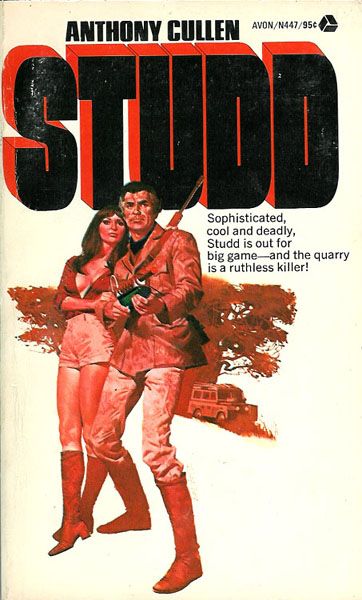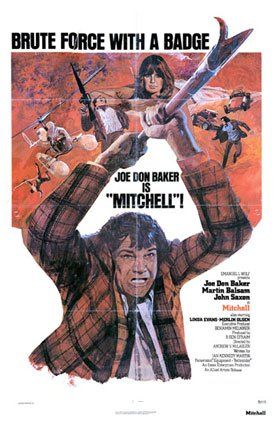A little of this, a little of that. Full disclosure: there's not a lot in here about comics. (Although there's some.) However, the other stuff falls into the usual geek-type areas of interest. Old paperback series, James Bond novels, junk culture of all sorts, you should know the drill by now.
*
Bond, James Bond: I'm a devout fan of James Bond, particularly the original books by Ian Fleming (as
I recounted in this space a couple of years back.) However, I don't really keep up with the Bond fan sites and press and such, so I was mildly surprised to see that Ian Fleming Publications had already chucked Sebastian Faulks in favor of a new series of Bond novels by Jeffrey Deaver.
Admittedly, I didn't think Faulks was all that great either. But then I haven't really liked any of the attempts at straight-up new Bond novels very much. (Not since 1968's Colonel Sun, anyway, which we'll come back to.)
I've gone on at length about what's wrong with the approach most of the writers use trying to capture what Ian Fleming did, but the short version is this -- they keep trying to nail James Bond's character, and that's really the least important part of the Fleming books. The worst crime is when writers of Bond pastiches try to make James Bond "cool." That inevitably means they've been misled by the movies, or worse, they're deliberately trying to cater to the movie fans. (Gardner was often guilty of this, I think.)
Here's the secret to re-creating Fleming's Bond. James Bond isn't a cool character, he's just a viewpoint for readers into a world that's incredibly cool. We don't want to visit with James Bond and tag along with him, like we would Sherlock Holmes or Mr. Spock or someone like that. We want to be James Bond and live in his world for a little while. The Bond of the novels is just a suit for readers to step into, so the more character touches you put in, the more you detract from that. It's all about the adventure and the incredibly exotic world that is just underneath the one you and I live in, one filled with genius supercriminals and amazing gadgets and fast cars and hot girls. Fleming's brilliant storytelling decision was writing the books largely from Bond's point of view, but keeping it as a limited third-person narrative. So we aren't having it narrated to us by James Bond, as we would in a first-person approach -- we are living it along with him, seeing everything from inside his head.
That's a really hard literary mark to hit. For years I've maintained that the only guy to honestly get there was Kingsley Amis in his magnificent Colonel Sun.
That was back in 1968 and I figured he was probably the only guy that would ever really suss the trick out, considering how the Bond movies have come to overshadow the novels.
For my money, the other successful attempts at doing new, non-Fleming James Bond books have been the ones to find a different viewpoint, and thus sidestep the Fleming comparisons entirely.
But now Jeffrey Deaver's decided to take on the challenge. An honest-to-God new Bond novel.
So what approach does Mr. Deaver take? And how did that work out?
Honestly? I think he might join the short list of writers who actually understand the job the estate's given them: Do Fleming's Bond -- but new. (It's not a mandate that's a lot different from the one given to comics writers who are taking over a long-running series character like Batman or Spider-Man, honestly.)
Sebastian Faulk tried to solve the narrative problem by making his Bond novel a period piece set in the sixties, but Deaver's done the polar opposite of that. His Bond is set squarely in the here and now.
What I really like is that he's doing the same kind of 're-imagining' of James Bond that Steven Moffat and company did with Sherlock Holmes in the BBC series Sherlock. Deaver is absolutely writing Ian Fleming's Bond, he's got the real cast there and they all are sounding and acting as they should. The original, male M with the steely eyes; delectable secretaries (okay, 'assistants') Miss Moneypenny and Mary Goodnight; Bond's friends Felix Leiter and Rene Mathis; even Bond's Scottish housekeeper May are all present and authentic enough to satisfy the most picky Fleming fan. (Which, yeah, probably includes me.) Evil supergenius villain with a weird sadistic quirk? Check. Scary henchman? Check. Hot babes with exotic names? You bet. (I love "Ophelia Maidenstone," but I think even Fleming might have winced at "Felicity Willing.")
But it's all in a counter-terrorism spy milieu that's much more like the one of Jack Bauer on 24. It shouldn't work but it does... I think because Jeffrey Deaver understands about the daydream quality of what Fleming did. His James Bond is a veteran of Afghanistan and understands about satellite intel and running assets in Arab countries and whatnot, he has to deal with jurisdictional bureaucracy and coordinating with foreign intelligence allies and all of that... but Severan Hydt is still an old-school demonic Fleming-style supercrook that only James Bond can take down. It's a remarkable tightrope walk of literary technique and Mr. Deaver deserves applause for pulling it off.
I only arrived at these conclusions afterward, thinking it over, because the reading experience itself was immersive. The narrative moves with the kind of headlong hell-for-leather drive that even Fleming himself only brought every once in a while -- like, say, On Her Majesty's Secret Service, easily the fastest-moving of the original Fleming novels. Deaver's Bond reads like that. I couldn't put the damn book down, and I never could say that about Gardner, Benson, or Faulks. But Deaver's Carte Blanche delivers in spades. Recommended.
*
Licensing Dept.: There's been a lot written this summer about comics-to-film, what with Green Lantern and Thor and Captain America and so on and so on.
However, it's also been a remarkably good summer for film-to-comics.
For one thing, Burn Notice, a favorite television show in this household, is celebrating its return to the airwaves with a digital comic.
"Burn Notice: A New Day" is a narrative bridge, telling the story of what Michael Westen was doing with the CIA between the end of the fourth season and the beginning of the fifth. Available online
here.
And Marvel just announced a new original graphic novel spinning out of ABC's Castle, another show much beloved in the Hatcher home.
Julie especially was pleased to hear about that, and I have to say that if this project is as much fun as the two "Richard Castle"-authored prose novels were, I'm rather looking forward to it myself.
But the film-to-comics project that had me almost levitating with glee? It came out last week.
That's right, suckas -- I'm talkin' bout Black Dynamite.
There have been several attempts in the last couple of years to re-create the joyously trashy vibe of 1970s exploitation films -- Grindhouse, Drive Angry, and so on -- but none of them hit it quite as dead-on as Black Dynamite. That movie got everything exactly right, even down to the film stock they used.
And I'm here to tell you that the comic was just as awesome. It looked like old-school Luke Cage would have, if it had been published by Warren. But in color.
Needless to say, I loved it. Brian Ash's script for "Slave Island" is funny enough by itself but what lifts this project up into the stratosphere is the loving attention to even the smallest details, in both the art and the packaging. The art by Jun Lofamia is brilliant; it looks like he's channeling Tony DeZuniga's entire studio. And I think you can see it even in the scans I've put up here.... they've done some sort of Photoshop filter or something in the coloring to give the pages that vaguely ivory-toned newsprint look.
This just had me grinning from ear to ear all the way through -- even the parody ad for the Farrante Jones REVOLVER Fitness program ("How Skinny-ass Jack became a BAD-ASS MACK!") was awesome. You should still be able to find it at your comics retailer, but if not, you can order it
here.
But whatever way you get it, you should get it. If you are a Bronze Age baby, as I am, then you will love this. And that's no jive, turkey.
*
Lightning Round of Links: These are just things I've run across over the last few weeks that I think might be of interest to you all.
I've occasionally thought of writing a rude column about how Fan Entitlement Syndrome™ has become so commonplace in the world of comics that it's led to a kind of insanity; a particular sort of jerk behavior that we too often shrug off as just an inevitable by-product of the fandom environment. But now I don't have to write that one, because my friend Jim MacQuarrie wrote it instead.
Don't Be That Guy.
Smart business advice for writers from Kristine Kathryn Rusch about coping with the digital revolution.
You probably have heard of Diary of a Wimpy Kid. But are you aware of the genius that is
Diary of a MANLY Kid?
And finally, friend of the blog Travis Pelkie put me on to this one --
Pulp History. Which is to say, a series of original graphic novels telling stories of actual events, in a very action-oriented pulpy style. Haven't had a chance to check out the books yet but the project certainly sounds cool.
*
Bookscouting Trivia: One of my favorite Western writers was a fellow named Jonas Ward, who wrote a series of books about a drifter named Buchanan.
The books are reliably good, solid western adventures built around a simple formula; Buchanan wanders into a town, gets embroiled in some sort of local problem, and ends up having to fight and shoot his way out. (It works a lot better than I'm making it sound -- after all, that's the same engine Jonah Hex has been running on for forty-some years now.)
The first one, The Name's Buchanan, was made into a movie in 1958, Buchanan Rides Alone, with Randolph Scott in the title role.
In fact, it's regarded as something of a classic, one of the series of films Scott made in the late 1950s with Budd Boetticher. We got the boxed set of those Scott-Boetticher collaborations on DVD not too long ago, and seeing the Buchanan movie reminded me that I'd been meaning to look into getting some more of those Jonas Ward novels.
So I did. And I found out that the Buchanan books are something of a collector's item for book people, and even more amazing, that "Jonas Ward" was actually several different writers. I'd never have guessed, the books seemed all of a piece to me.
The first one, and the creator of Buchanan, was a hard-boiled mystery writer named William Ard.
He was cranking out tough-guy paperback mysteries at the rate of three or four a year and decided maybe he'd diversify by doing some tough-guy westerns as well, and thus was born Buchanan and "Jonas Ward."
Then he got cancer and died in 1960. But that hardly even slowed the Ard-"Ward" factory down.
John Jakes finished his last few mysteries, and science-fiction writer Robert Silverberg was recruited to finish Buchanan On The Prod. He said of the experience, "I wrote most of BUCHANAN ON THE PROD, working from a fragment that William Ard left behind. (We had the same agent.) Westerns, of course, were never a specialty of mine, and I doubt that the book stacks up very well against Ard's own work, but I gave it a good try."
Silverberg only did the one, though, and the next one was by Brian Garfield. I saw that and thought, The Death Wish guy? Seriously?
By now I was really curious, and as it happens Mr. Garfield has
a web site where he says he'll answer reader questions.
So I wrote and asked him about Buchanan, and here's what he told me: "Jonas Ward was the pen-name of mystery writer William Ard. After he died, Fawcett Gold Medal editor Knox Burger asked if I'd like to take over the 'Buchanan' series of Westerns. I was broke, so I wrote one -- it's called 'Buchanan's Gun' -- but then was able to get an advance from Doubleday for a lengthy nonfiction book, so with Knox Burger's permission I asked my friend William R. Cox if he'd like to take over, and he did. I think Bill wrote all the Buchanans after mine. Hope that helps." (It did indeed, and thanks again to Mr. Garfield for taking the time.)
As far as I can dig up, Mr. Cox kept up with the series well into the eighties, as well as producing a bunch of other tough western novels under his own name. But when he passed away in 1988, that was it for Buchanan and "Jonas Ward," as well.
There have been lots of times I've discovered several authors I liked were all the same guy writing under a pen name.... writers like Ron Goulart, or Jim Lawrence. But this is the first time, I think, that I've discovered that one writer I liked a lot was actually four writers I liked a lot, and three of the four -- Robert Silverberg, Brian Garfield, and William Ard-- are much better known for work in other genres than the one the pen name's using. Only Cox was really known for his Westerns. Clearly Knox Burger had a good eye for talent, considering that all the "Jonas Ward" writers went on to considerable success. William Ard probably would have too, if he hadn't died young.
Anyway. My experience has been that no matter how disparaging some of the "Jonas Ward" writers themselves might be over the novels today, a Buchanan book is usually a good time. Pristine first editions are highly sought after, but you can find nice reading copies for a buck or so on Amazon if the mood strikes you.
Also, I should mention that most of this information came from an afternoon's digging around on
Pulp Serenade and Dennis Miller's
William Ard blog. Interesting reading for lots of other things too, if you like old pulp paperbacks and have some time to kill.
*
...And One More Link, But This One Has A Story: Once upon a time, my friend Rick bought a book.
With a name like that as well as a magnificent Fred Pfeiffer cover, I'm sure you're wondering what it was about... so, please, enjoy this back cover copy.
His Name Is Studd - He Deals In Life And Death
Studd is a big-game hunter, a former secret agent and the kind of intense man who attracts women - and more then his share of danger.
Contacted by his onetime chief to go on an emergency mission, Studd refuses. But when he learns that his intended adversary is Royal, the mysterious leader of a powerful, death-dealing organization - and that his sister is one of Royal's victims - Studd accepts.
What follows is a spellbinding hunt in a maze of international espionage .... building to an explosive climax in the tradition of the greatest of shockers!
This clearly awesome book resulted in Rick starting a thread on the CBR Community message board to tell the rest of us about it, and it evolved into a long sprawling exchange of stories about all SORTS of amazing cool grindhouse exploitation stuff.
Turns out there were quite a few of us with an unholy love for this sort of thing. It went on for years. I got springboards for at least three columns out of it.
Anyway, Rick now has started a blog dedicated to celebrating this kind of material. It's called, of course, His Name Is Studd in honor of the book that started it all.
He's always got something cool up there. Go check it out
here.
*
And that's it, this time around. See you next week.


